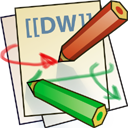Essa é uma revisão anterior do documento!
CienciaAberta > WorkshopDadosGeo (portuguese)
Workshop on Geo-referenced data - 20/05/16
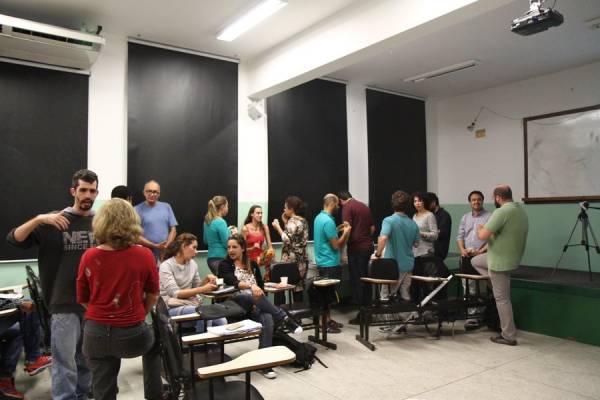
One of the recurring issues that Ciência Aberta Ubatuba platform has been facing is related to the visibility, use, durability and interoperability of geo-referenced data produced about the territory. The availability of open and shareable geo-referenced data in the region is central to promote social participation in ongoing processes in the territory, such as the revision of Ecological-Economic Zoning (ZEE) in the region, the Plan for Hydrographic Basins and the Management Plan for APAMLN (Marine Environmental Preservation Area on the Northern Coast of São Paulo State).
Different projects often put their efforts into collecting and organizing these information for various purposes. Sometimes, they share the results among themselves, make maps available on the internet and present them in events. Less frequent is these initiatives being able to share such information in an open and structured way which allows its reuse, cross-breeding, public checking. Even wishing to do so, they end up facing barriers in technical, resource or knowledge terms.
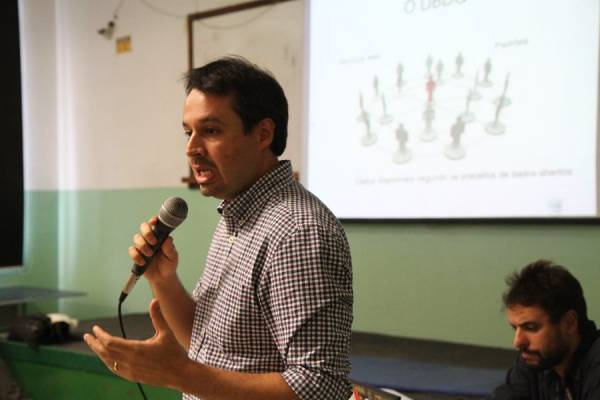
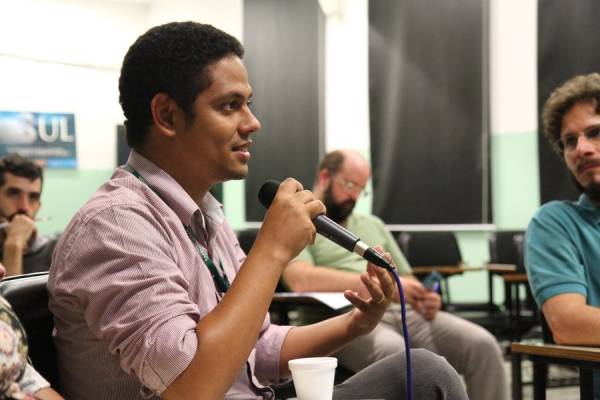
Aiming at promoting the exchange of experiences on producing and using such informations, as well as delineating strategis of sharing data and knowledge accumulated by various initiatives, we decided to organise a workshop sobre dados georreferenciados. We invited people who had interest in these issues, as well as professionals whose experience would add to the construction of local strategies for sharing open geo-referenced data, with a focus on the northern coast of São Paulo. The workshop took place on the 20th of may 2016, in Tancredo Neves school, in Ubatuba, and counted with relevant projects both in local and national scale.
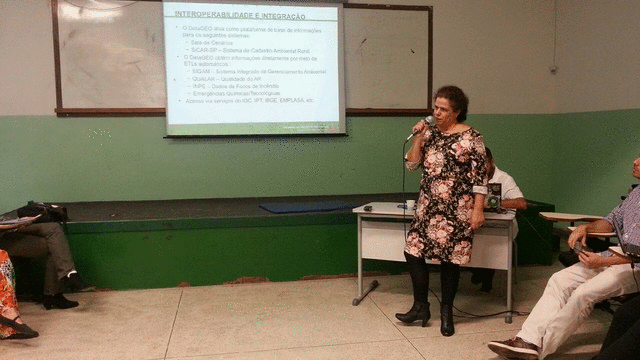
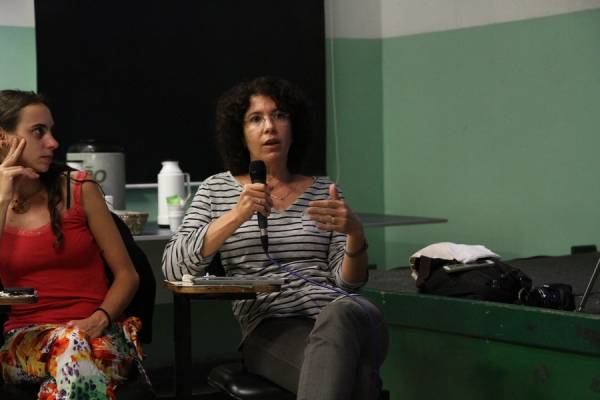
The first part of the workshop started with presentations about digital infrastructure for sharing geo-referenced data in Brazil. Hesley PI (IBGE / PhD candidate in IBICT-UFRJ) explained the possibilities of INDE, the National Infrastructure for Spatial Data, a public platform created in 2010 by a consortium of 23 nationwide and some regional organs, with the goal of enabling the exploration and sharing of data generated by various institutions. After him, the Datageo team, from the regional Environmental Authority in the State of São Paulo (Ana Maria, Edgard Joseph and Igor Redivo) presented the Datageo portal, and brought about some reflections on how to promote the dialogue between “old” systems and new technological possibilities.
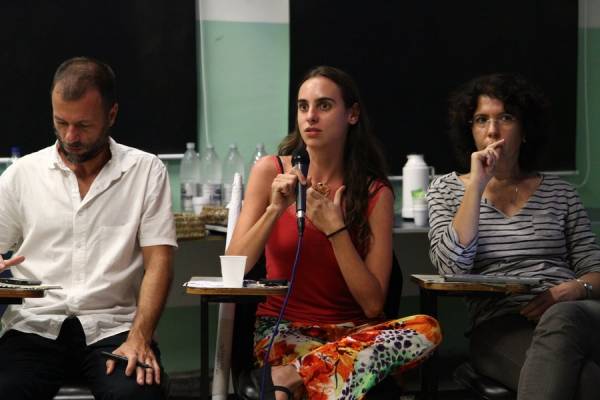
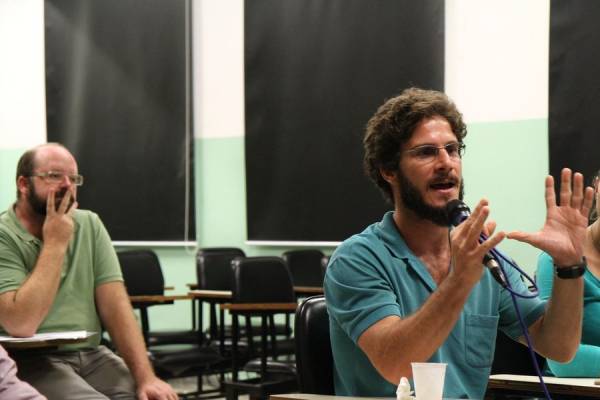
As experiências de três instituições cuja atuação abrange o território de Ubatuba foram então apresentadas. Gabriela Sartori, da APA Marinha do Litoral Norte, falou sobre a construção da informação cartográfica com a participação das comunidades, ressaltando ainda algumas particularidades advindas de se trabalhar com mapas no ambiente marinho. Fabio Pincinato, do Comitê de Bacias Hidrográficas do Litoral Norte, contou sobre as maneiras que diversos projetos acabam encontrando para compartilhar dados cotidianamente, muitas vezes de forma informal. Apontou que uma das coisas que fazem falta é “um servidor web” para a disponibilização dos dados. Pedro, do Observatório de Territórios Sustentáveis e Saudáveis da Bocaina, apontou a importância de se aproximarem os dados georreferenciados da cartografia social, e de como estes recursos podem ajudar a qualificar processos de luta por território das comunidades tradicionais da região.
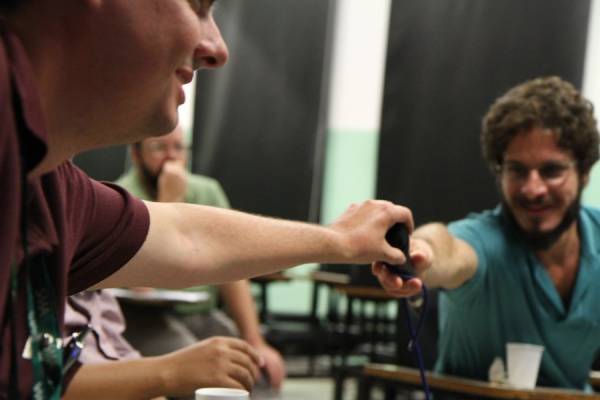
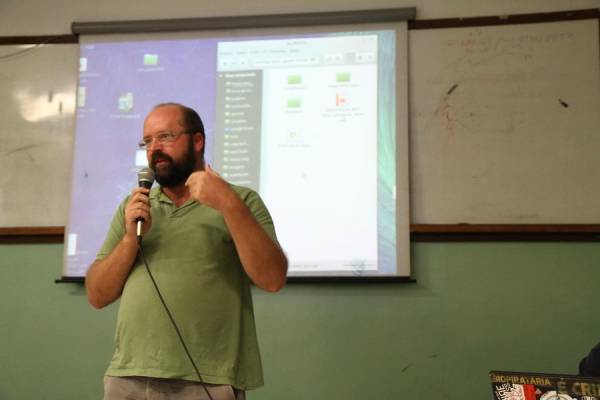
A segunda parte do workshop foi uma rodada aberta tentando delinear estratégias coletivas para o compartilhamento de dados georreferenciados. Foi sugerida a formação de um grupo de trabalho para desenvolver protótipos utilizando-se de softwares livres para a internet como o GeoNetwork e o GeoServer, e simultaneamente dar início à construção de um projeto de mais longa duração que possibilite a disponibilização permanente de dados, eventualmente construindo um consórcio de instituições que passe a integrar a INDE. Como proposta imediata, foi constituído um grupo de colaboração e trabalho que já se reuniria em 03/06 para organizar um plano de ação.
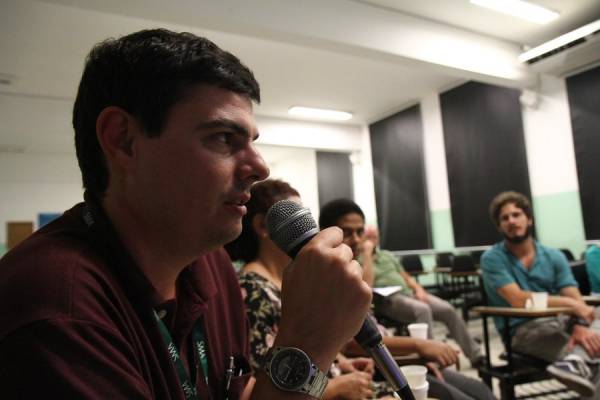
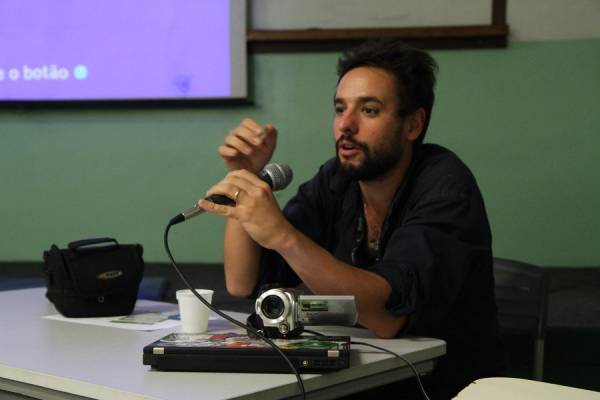
Some issues to be faced by such initiative were appointed: modes of adhesion, institutional and governance settings; integration or compatibilization of standarts; web infrastructure; metadata compatibility.
See also
- Notes from Ciência Aberta Ubatuba team during the workshop.
- Slides:
- Ongoing research: Mapas Digitais
- Audio documentation of the workshop (two parts, in portuguese)
~~DISQUS~~
